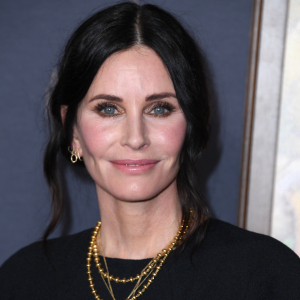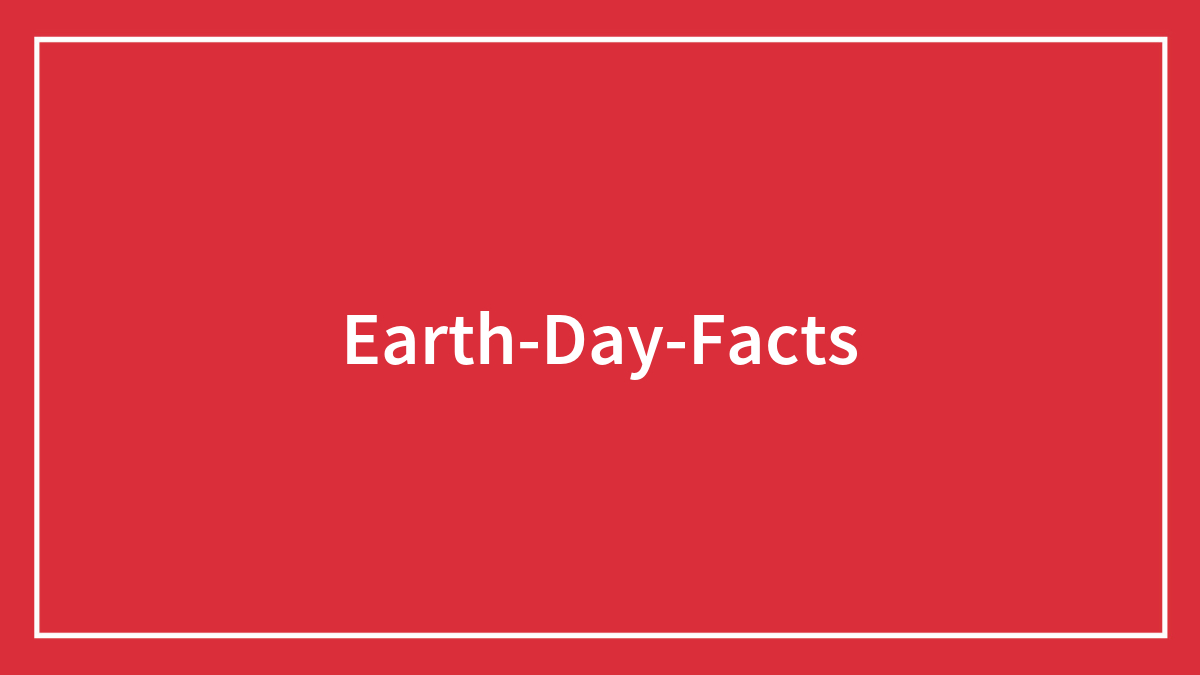
With The Celebration Of The Planet Coming Up, These 29 Earth Day Facts Might Help You To Prepare For It
While jokes about our planet and the activities we can partake in are good, nothing can beat a batch of some Earth Day facts. They can be fun and informative in just a few sentences and words.
Through these facts about Earth Day, we get to open a window into the knowledge of this one single planet — learn about the place where we live and which we celebrate only once a year. With the day quickly approaching, it might be time to look at the significance of the main Earth Day fun facts and why we should read up on them.
There is something special about our blue moving dot of dust in space — this is why we have an Earth Day every year. We live on one of the best planets in our galaxy, yet some tend to ignore the fun facts about Earth Day.
Some don’t even know what day is Earth Day — it’s April 22, if anyone is wondering. Jokes fade away, and activities get boring, but facts stay in our minds for a much longer time.
What could go wrong with learning an Earth Day fact or two in your free time? To save you some time and electricity in the search for them, we compiled some of the best in the list below. If the fact caught your interest, upvote it.
On the other hand, if you have anything more to share about our celebration of Earth, share it in the comments below.
This post may include affiliate links.
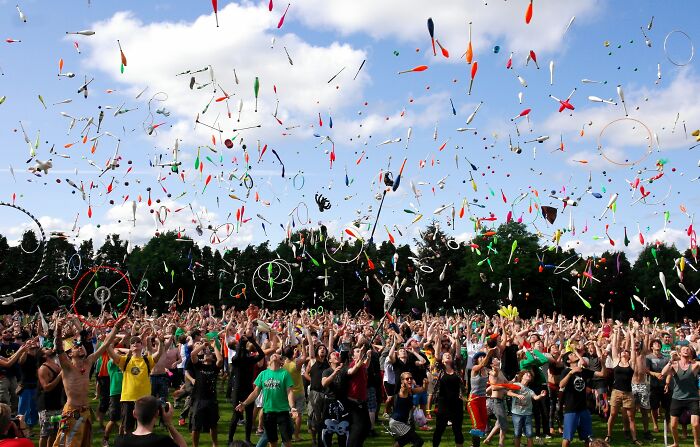 20 million Americans celebrated the very first Earth Day.
When the first Earth Day occurred, a lot of people decided to participate in it. Nelson carefully chose April 22 to attract more people to the event. Around 10 percent of the United States population participated. The 20 million people that participated created the largest single-day protest in history.
20 million Americans celebrated the very first Earth Day.
When the first Earth Day occurred, a lot of people decided to participate in it. Nelson carefully chose April 22 to attract more people to the event. Around 10 percent of the United States population participated. The 20 million people that participated created the largest single-day protest in history.
I hope this isn't actually a picture from the first earth day as all that trash would be really difficult to pick up.
 Earth Day gained popularity worldwide slowly.
Earth Day wasn’t always the sensation we know for it today. It remained a local concern for 20 years until expanding internationally and reaching 140 nations in 1990. Today, it is celebrated in more than 190 nations, with approximately one billion individuals taking part in worldwide activities each year.
Earth Day gained popularity worldwide slowly.
Earth Day wasn’t always the sensation we know for it today. It remained a local concern for 20 years until expanding internationally and reaching 140 nations in 1990. Today, it is celebrated in more than 190 nations, with approximately one billion individuals taking part in worldwide activities each year.
 2023 Earth Day seeks to promote the investment into our planet.
The theme of 2023 Earth Day is “Invest In Our Planet.” The main point is for politicians, people, and businesses to protect our planet by investing in it in multiple ways, like reducing pollution.
2023 Earth Day seeks to promote the investment into our planet.
The theme of 2023 Earth Day is “Invest In Our Planet.” The main point is for politicians, people, and businesses to protect our planet by investing in it in multiple ways, like reducing pollution.
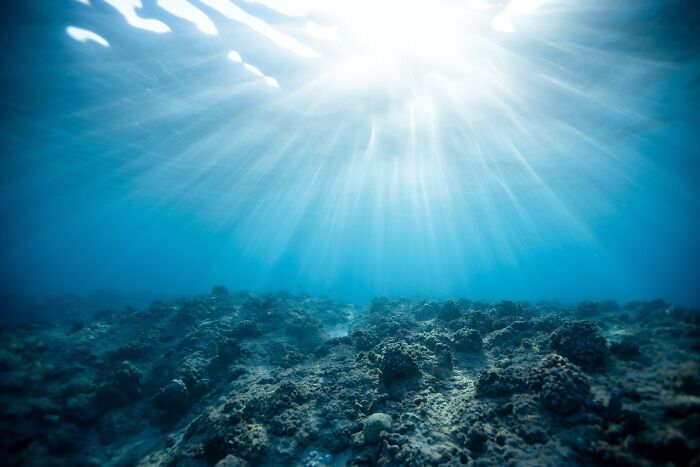 World's coral reefs were ravaged by global warming and mining.
Climate change has had a lot of impact on the natural wonders we have in our world. The world's coral reefs have been damaged by 25–50%. They were irreparably harmed by pollution, harsh fishing methods, the collection of live coral for aquariums, the mining of coral for construction materials, and a changing climate.
World's coral reefs were ravaged by global warming and mining.
Climate change has had a lot of impact on the natural wonders we have in our world. The world's coral reefs have been damaged by 25–50%. They were irreparably harmed by pollution, harsh fishing methods, the collection of live coral for aquariums, the mining of coral for construction materials, and a changing climate.
Gaylord Nelson pushed for the Earth Day celebrations. Wisconsin Governor Gaylord Nelson basically created Earth Day. It only took one person to push the needed idea of an Earth Day to the public. A Wisconsin Governor, Gaylord Nelson, set up programs and a department whose main goal was to conserve the environment.
 Earth Day was created to teach people about the environment.
In 1969, Nelson came up with the concept of an environmental teach-in. It was intended to mobilize support for the fledgling environmental movement among the general population. Nelson had to employ an 85-person crew to launch the inaugural Earth Day since his proposal was well received.
Earth Day was created to teach people about the environment.
In 1969, Nelson came up with the concept of an environmental teach-in. It was intended to mobilize support for the fledgling environmental movement among the general population. Nelson had to employ an 85-person crew to launch the inaugural Earth Day since his proposal was well received.
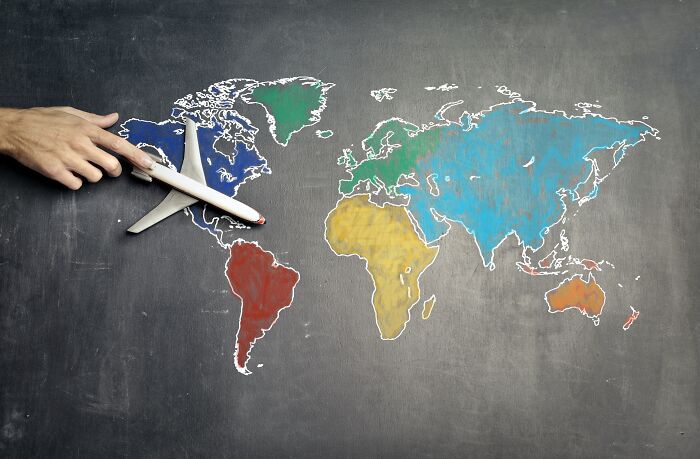 Earth Day is celebrated in a lot of countries.
In 1990, on Earth Day's 20th anniversary, the movement's leaders decided it was time to go worldwide, and 200 million individuals from 141 different nations took part. The effects of the event were profound as it sparked a wave of widespread recycling programs and prepared the ground for the Rio de Janeiro Earth Summit in 1992.
Earth Day is celebrated in a lot of countries.
In 1990, on Earth Day's 20th anniversary, the movement's leaders decided it was time to go worldwide, and 200 million individuals from 141 different nations took part. The effects of the event were profound as it sparked a wave of widespread recycling programs and prepared the ground for the Rio de Janeiro Earth Summit in 1992.
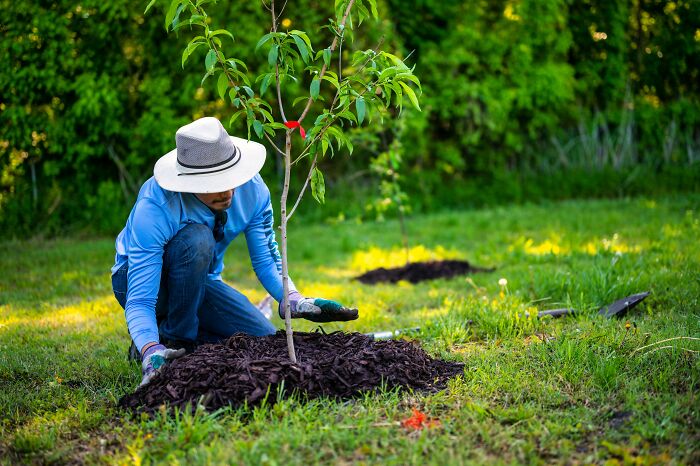 The theme of Earth day changes every year.
As with any celebration, like birthdays and Halloween, Earth Day also has different themes every year. For example, in 2016, the Earth Day theme was “Trees for the Earth,” and the goal was to plant as many trees as people can till the 50th anniversary came. It was a goal to plant 7.8 million trees by 2020.
The theme of Earth day changes every year.
As with any celebration, like birthdays and Halloween, Earth Day also has different themes every year. For example, in 2016, the Earth Day theme was “Trees for the Earth,” and the goal was to plant as many trees as people can till the 50th anniversary came. It was a goal to plant 7.8 million trees by 2020.
 There is an Earth Hour, before Earth Day.
People participate differently when Earth Day approaches them. Usually, they do so through the happily named “Earth Hour.” The point is for people to help preserve our planet by turning off electrical appliances and lights in houses for an hour. In 2023, Earth Hour took place on March 25, and the date always changes every year.
There is an Earth Hour, before Earth Day.
People participate differently when Earth Day approaches them. Usually, they do so through the happily named “Earth Hour.” The point is for people to help preserve our planet by turning off electrical appliances and lights in houses for an hour. In 2023, Earth Hour took place on March 25, and the date always changes every year.
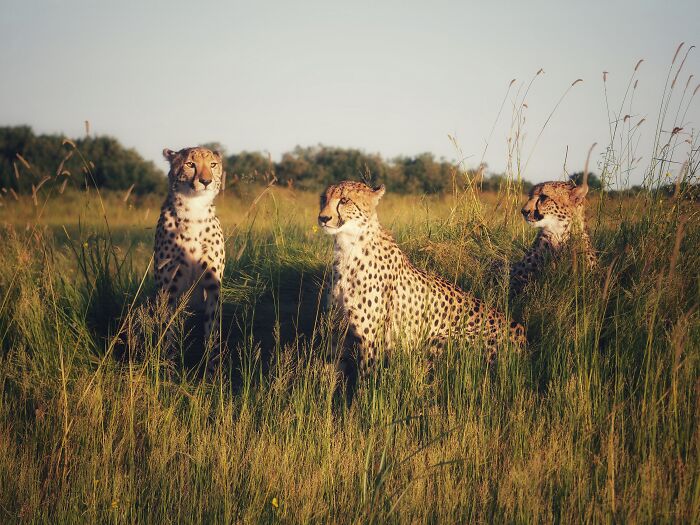 Earth Day seeks to protect the declining animal population.
Earth is not only inhabited by humans but by animals too. For millions of years, animals dominated wildlife, but this changed in the past few centuries. For this reason, Earth Day focuses on their preservation too. From 1970 to 2014, the animal population was reduced by 60 percent due to climate change and other factors.
Earth Day seeks to protect the declining animal population.
Earth is not only inhabited by humans but by animals too. For millions of years, animals dominated wildlife, but this changed in the past few centuries. For this reason, Earth Day focuses on their preservation too. From 1970 to 2014, the animal population was reduced by 60 percent due to climate change and other factors.
Senator Nelson wanted to involve the students in the first Earth Day. Sometimes, all it takes for the people to arrive is to set the correct date. Nelson carefully chose the April 22 date to approach his main demographic of voters — students. April 22 was selected due to it being between their spring break vacation and final exams. It was also one day after the birthday of John Muir.
Equinox Day is a different celebration. Equinox Day and Earth Day are not the same. On March 20, the first day of spring, we celebrate Equinox Day, a holiday that also honors the concept of protecting the environment. The Equinox Day in 2020 fell on March 19, making it the earliest start to spring in over a century. Every year the date changes.
Rachel Carson's book added to the creation of Earth Day. Despite writing multiple books, Rachel Carson is most known for her 1962 publication "Silent Spring," which warned of the risks of pesticides along with other environmental issues. More than 500,000 copies were sold, increasing public awareness and igniting the environmental movement.
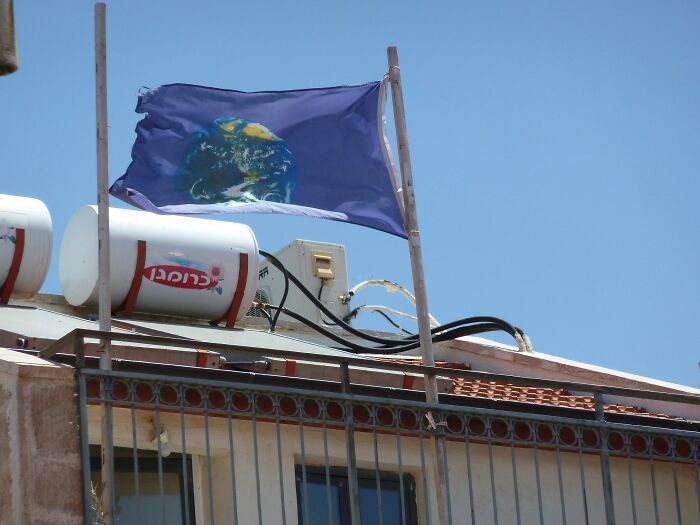 Earth Day celebration has its own flag.
Everything has to have a flag, and there is an official one for Earth Day. John McConnell, a peace campaigner, submitted his "Earth Flag" design in 1969. It has a very interesting design — the photo of our blue marble from space on a simple background. There were several other designs proposed, which are more or less familiar.
Earth Day celebration has its own flag.
Everything has to have a flag, and there is an official one for Earth Day. John McConnell, a peace campaigner, submitted his "Earth Flag" design in 1969. It has a very interesting design — the photo of our blue marble from space on a simple background. There were several other designs proposed, which are more or less familiar.
There are "moon trees" growing on Earth. Stuart Roosa, an astronaut of Apollo 14, transported hundreds of seeds of loblolly pine, sycamore, sweetgum, redwood, and Douglas fir trees with him to the moon in 1971. In the command module, Roosa and his seeds completed 34 orbits of the moon. Upon the return of these seeds, they got planted and are growing even today.
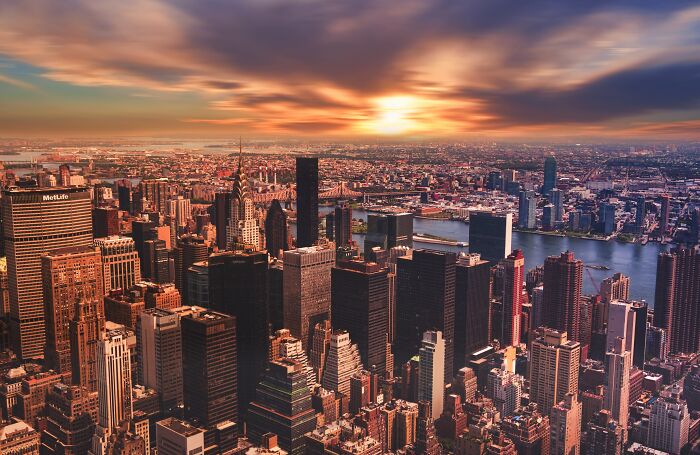 The first Earth Day celebrations were mostly hosted in New York and Philadelphia.
The primary festivities of the inaugural Earth Day in 1970 were hosted in New York City and Philadelphia. Since they are among the biggest cities in the United States, it was only natural for them to do so. In New York, the main event was coordinated by the students and professors of Columbia University.
The first Earth Day celebrations were mostly hosted in New York and Philadelphia.
The primary festivities of the inaugural Earth Day in 1970 were hosted in New York City and Philadelphia. Since they are among the biggest cities in the United States, it was only natural for them to do so. In New York, the main event was coordinated by the students and professors of Columbia University.
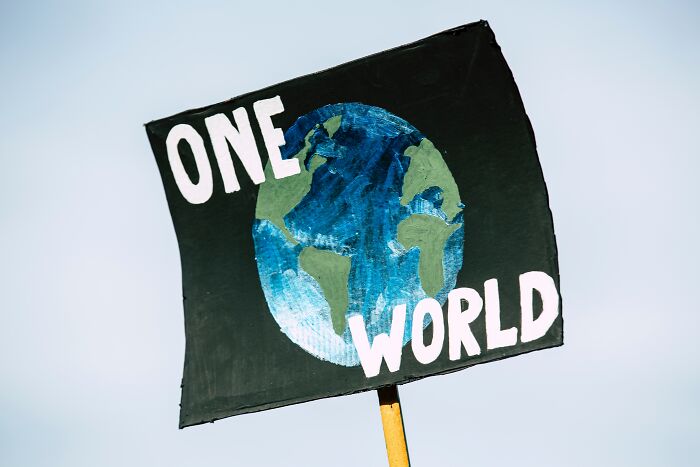 The origins of Earth day are recent.
We haven’t always celebrated our planet every year — it’s quite a new “invention.” Earth Day was established for the first time on April 22, 1970, and World Environment Day followed in 1972.
The origins of Earth day are recent.
We haven’t always celebrated our planet every year — it’s quite a new “invention.” Earth Day was established for the first time on April 22, 1970, and World Environment Day followed in 1972.
Erath Day helped pave the way for important government acts. The inaugural Earth Day had an immediate and significant effect, and by December 1970, President Richard Nixon had formed the Environmental Protection Agency. That same year also saw the creation and passage of the Clean Air Act. More federal legislation followed soon after.
Scientists have joined Earth Day celebrations. While the annual March for Science started as a different initiative in February 2017, it participated in Earth Day demonstrations and festivities in Washington, D.C. and 360 other cities by April of the same year. They focused more on the scientific reasons for stopping global warming and opposing policies that benefited fossil and other industries.
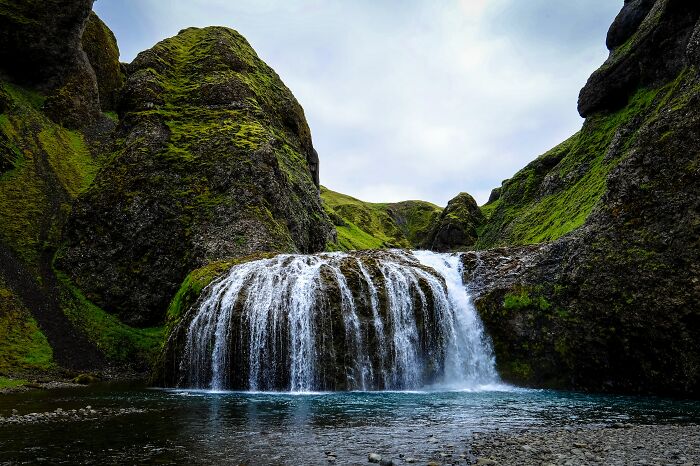 Earth Day is celebrated through small, but vital accomplishements.
Earth Day is still a growing celebration, where even the minimalist accomplishments are critically vital. For example, in 2015, to protect the beauty of the Usambara Mountains, Tanzania decided to teach the residents about water preservation and protection of the area. Other countries took up similar actions.
Earth Day is celebrated through small, but vital accomplishements.
Earth Day is still a growing celebration, where even the minimalist accomplishments are critically vital. For example, in 2015, to protect the beauty of the Usambara Mountains, Tanzania decided to teach the residents about water preservation and protection of the area. Other countries took up similar actions.
Earth Day has another name. Holiday names usually stay the same so that people won't be confused. So it might surprise you that Earth Day has another proposed name created by a United Nations General Assembly pending resolution — International Mother Earth Day. While it’s still pending, we have to live with the Earth Day name.
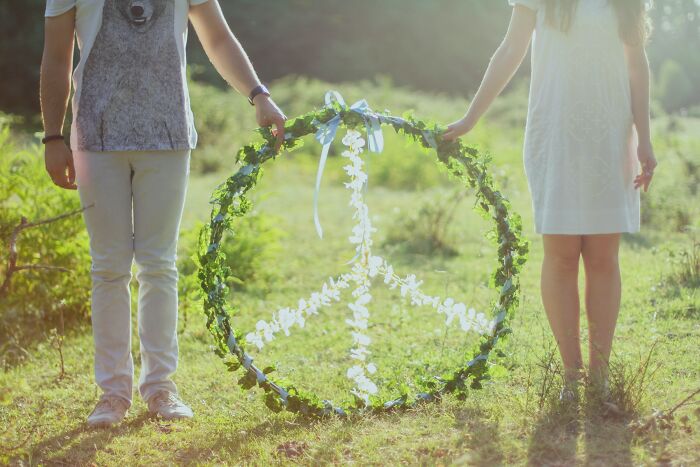 Earth Day also promotes world peace.
In 2011, a campaign was launched with the idea “Plant Trees Not Bombs.” The point was to spread world peace by planting trees in war-devastated states like Afghanistan, where 27 million trees were planted.
Earth Day also promotes world peace.
In 2011, a campaign was launched with the idea “Plant Trees Not Bombs.” The point was to spread world peace by planting trees in war-devastated states like Afghanistan, where 27 million trees were planted.
An oil spill inspired Nelson to create Earth Day. One of the reasons why Gaylord Nelson pushed for Earth Day was because of a 1969 accident off the coast of Santa Barbara, California, a rig blowout that resulted in an oil spill that impacted the local environment. It inspired Nelson to organize the first Earth Day to educate the public.
 Riding bikes is one of the ways to celebrate Earth Day.
One of the largest contributors to global warming is the gasses that cars with internal combustion engines emit. So some people decided to reduce our carbon footprint by riding bikes. On 2012 Earth Day, 100,000 people in China rode bikes across Beijing, showing how beneficial it is for the environment.
Riding bikes is one of the ways to celebrate Earth Day.
One of the largest contributors to global warming is the gasses that cars with internal combustion engines emit. So some people decided to reduce our carbon footprint by riding bikes. On 2012 Earth Day, 100,000 people in China rode bikes across Beijing, showing how beneficial it is for the environment.
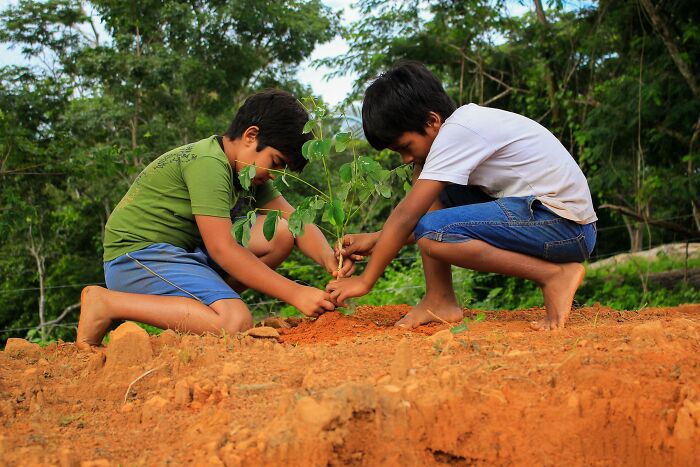 Earth Day 2016 focused on the planting of trees.
Trees are the backbone of our environment, as they help clean our air and beautify the areas they are in. In approximately 200 nations, over one billion individuals celebrated Earth Day in 2016. The celebration's theme was "Trees for the Earth," with participants emphasizing the urgent need for forests and trees worldwide.
Earth Day 2016 focused on the planting of trees.
Trees are the backbone of our environment, as they help clean our air and beautify the areas they are in. In approximately 200 nations, over one billion individuals celebrated Earth Day in 2016. The celebration's theme was "Trees for the Earth," with participants emphasizing the urgent need for forests and trees worldwide.
EPA is the result of the first Earth Day. The majority of decisions usually come from government agencies and international organizations. If talking about the United States departments specialized in the environment, this duty falls on the Environmental Protection Agency. Its founding was one of the greatest results that the first Earth Day achieved.
John F. Kennedy was interested in the environmental movement. If you want something to get done, you have to reach the president of the United States. To do so, Senator Nelson proposed a "conservation tour" to Robert F. Kennedy and Arthur Schlesinger, a member of the “brightest minds” in the president's cabinet. After hearing the idea, President Kennedy went on a state tour focused on conservation.
2016 Earth Day saw the signing of the Paris Climate Agreement. On April 22, 2016 the Paris Climate Accord was signed by multiple nations. This agreement aims to unite the world and safeguard the environment. The accord set goals for every participant to reduce their carbon footprint and try to contain global warming below the dangerous 2 Celsius line.
The largest Earth Day celebration happened in 2007. When it comes to the number of participating people, 2007 Earth Day was the largest one in the history of the event. Millions of people participated from a variety of nations, including the Philippines, USA, Spain, Ukraine, and many more. The Lincoln Park Zoo was able to attract 40000 people in a single day.
Very good question. I doubt many of them waited around with bin bags and litter pickers to help tidy up afterwards either.
Load More Replies...Very good question. I doubt many of them waited around with bin bags and litter pickers to help tidy up afterwards either.
Load More Replies...
 Dark Mode
Dark Mode 

 No fees, cancel anytime
No fees, cancel anytime 


























